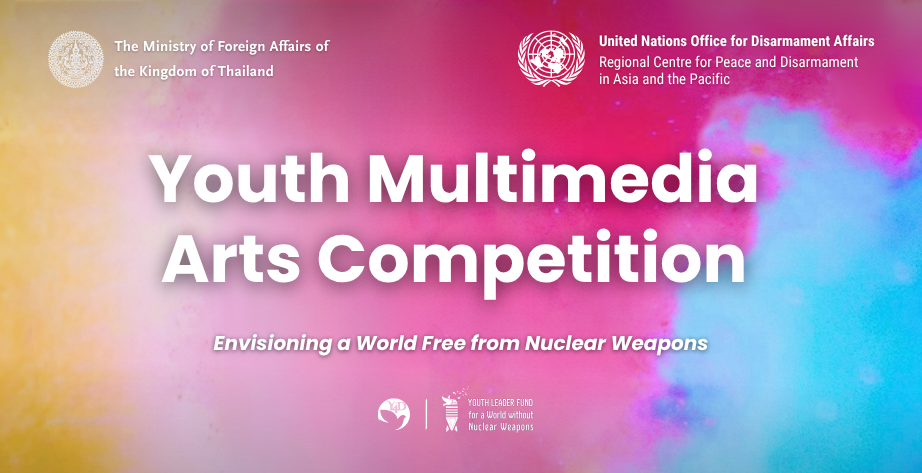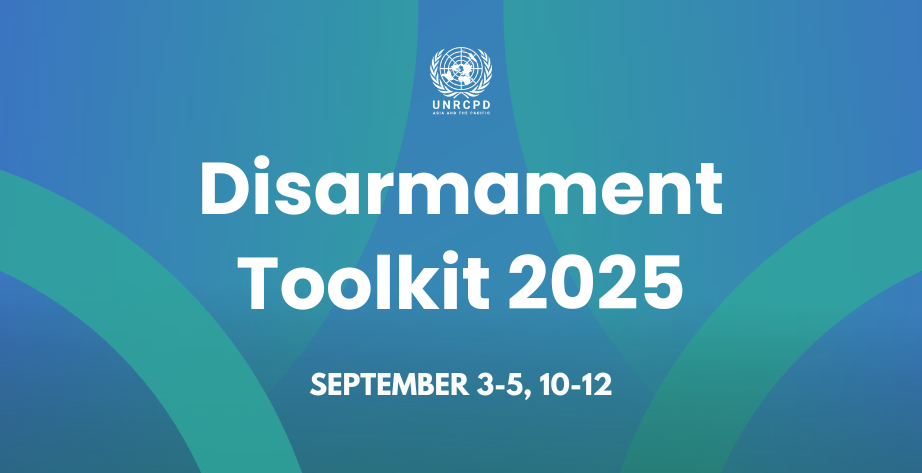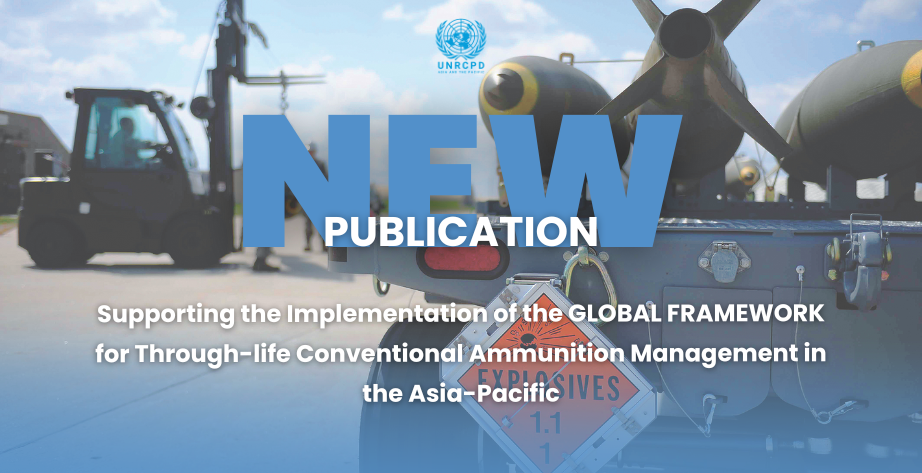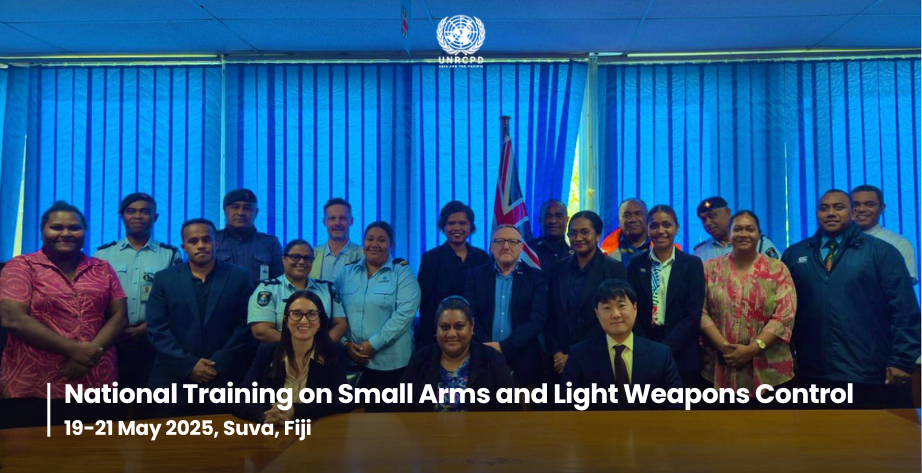What is UNRCPD?
Conventional Weapons
UNRCPD, along with partners including ASEAN, PIF and SAARC, works to assist member States enhance their capacity to ensure full control over their national stockpiles. As co-custodian of SDG 16.4.2, UNRCPD focuses on address the threats posed by illicit Small Arms and Light Weapons, working towards armed violence reduction, as well as improve disarmament outreach and advocacy. The focus of UNRCPD’s efforts to date, in the field of conventional arms, has centered on implementation of the UN Programme of Action on Small Arms and Light Weapons (PoA) and the passage and implementation of the Arms Trade Treaty (ATT).
Weapons of Mass Destruction
UNRCPD works to support and enable progress in disarmament, non-proliferation and capacity building across Asia and the Pacific. By partnering with regional and sub-regional organizations, other United Nations entities, as well as civil society groups, UNRCPD assists the international community in efforts to create a future world free of weapons of mass destruction (WMD). UNRCPD works to promote the full and universal implementation of relevant WMD disarmament mechanisms, including the Nuclear Non-proliferation Treaty (NPT), the Treaty on the Prohibition of Nuclear Weapons (TPNW), the Biological Weapons Convention (BWC), the Chemical Weapons Convention (CWC), and all other relevant mechanisms on eliminating and preventing the proliferation of weapons of mass destruction.
Disarmament Education
UNRCPD works to support and promote the education of next generation of disarmament, nonproliferation and arms control experts. In line with the Secretary General's Agenda for Disarmament "Securing Our Common Future", UNRCPD works in cooperation with partners to engage young people, educators, experts and government officials to ensure that the people are informed with accurate and timely information about disarmament, nonproliferation and arms control. For example, with UNRCPD’s support, Nepal is implementing a new model of delivering Peace and Disarmament education to meet post-conflict challenges – a model UNRCPD aims to bring to other countries in Asia and the Pacific in the future. By addressing the roots of interpersonal violence and reducing the demand for arms, the project will contribute to a stable, unified Nepal for future generations and help strengthen the fragile peace that the people of Nepal have worked tirelessly to achieve.
Country Profiles
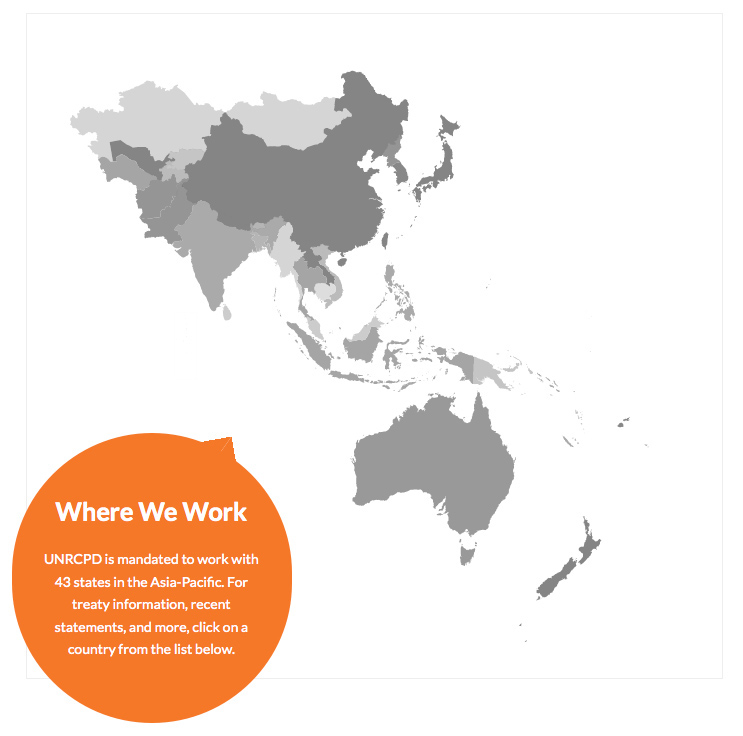
Where We Work
UNRCPD is mandated to work with 43 states in the Asia-Pacific. For treaty information, recent statements, and more, select a country to visit its profile page.
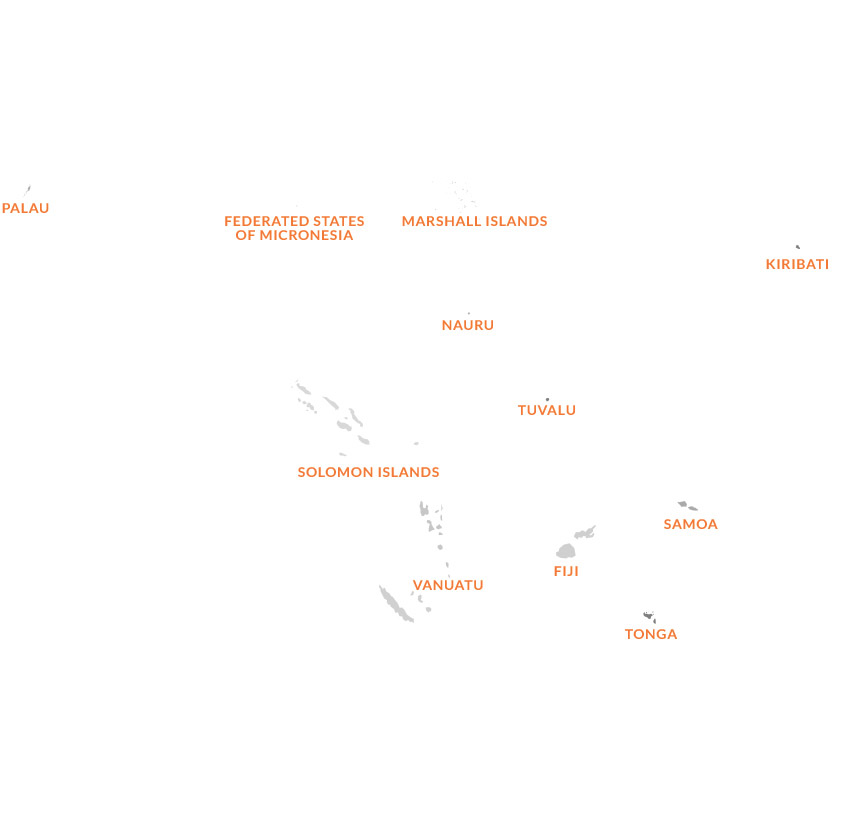
Where We Work
UNRCPD is mandated to work with 43 states in the Asia-Pacific. For treaty information, recent statements, and more, select a country to visit its profile page.
UNRCPD was established with three goals in mind: promoting the universal ratification and implementation of global disarmament treaties and norms, promoting dialogue and confidence building, and opening spaces to address challenges to regional security. All of these goals are pursued, where possible, with the active engagement of women and youth, and in line with the aims of promoting regional and global disarmament, arms control and non-proliferation. To this end, and more specifically, UNRCPD’s programming is broadly organized into four major pillars: conventional weapons, weapons of mass destruction, peace and disarmament education and cross-cutting issues such as emerging technologies and gender equality.


